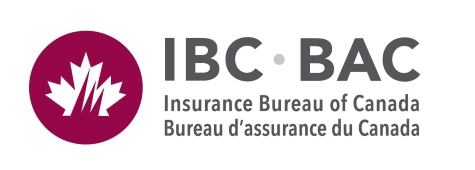TORONTO, June 1, 2023 /CNW/ - With several wildfire warnings and watches in effect across Ontario, Insurance Bureau of Canada (IBC) is reminding Ontarians to be prepared for some potentially difficult months ahead. Environment Canada is predicting that weather conditions in June through August will create an above-average risk of wildfire in the province.
"The wildfire season in Ontario is already underway, and the outlook for much of the province is very concerning. With hot, dry weather in the immediate forecast, wildfires can spread very quickly and residents in affected areas may have only moments to evacuate," said Kim Donaldson, Vice-President, Ontario, IBC. "Wildfires are a real and present danger, especially if you live in a heavily forested area. However, there are steps you can take to help protect your family, your home or your business."
Ontario's wildfire season extends until October 31. Information about the current forest fire danger, forest fire activity and fire restrictions across the province can be found at the Government of Ontario's Forest Fires webpage. Residents can also access the Government of Ontario's Interactive Fire Map for real-time information on active fires, current fire danger across the province, and restricted fire zones in effect.
"IBC is urging Ontarians to stay alert and follow the advice of local authorities when it comes to fire bans," said Donaldson. "In the event that you are evacuated, make sure you plan to be out of your home for more than a couple days. As we've seen from the recent wildfires in Western and Atlantic Canada, individuals and families have been displaced for several days."
Virtually every home insurance policy covers damage caused by fire, even if the fire began on a neighbouring property, as long as the fire was not started intentionally by the policyholder or a member of their household. Ontarians with general questions about their home, business or car insurance policies are encouraged to contact IBC's Consumer Information Centre at 1-844-2ask-IBC (1-844-227-5422). Residents can also visit IBC's Wildfires webpage to learn more about insurance coverage and the various stages of the claims process.
IBC's Top 10 Wildfire Safety and Prevention Tips:
- Stay informed about the weather. When there is a lot of hot, dry weather in the forecast, be sure to monitor local and provincial information sources for fire bans and warnings.
- Pay attention to fire danger ratings. Take note of and obey fire bans and restrictions to know the likelihood of, and prevent, wildfire igniting in your region. Check your local government's website for more information.
- Install and regularly maintain smoke alarms in your home. Remove dust, replace batteries when the clocks change in spring and fall, test regularly and replace at least every 10 years.
- Prepare your home. Check that your home's roof and exterior walls and the undersides of balconies are treated with flame-resistant materials.
- Properly store flammable materials. Store gasoline, solvents or other materials that may ignite, at least 10 metres away from your home.
- Remove dry leaves and debris. Keep leaves, other dry materials and potentially flammable garbage away from the exterior of the house, especially if you have wood or vinyl siding.
- Manage space around your home. Remove combustible material such as shrubs, trees and woodpiles within 10 metres of your home.
- Create an emergency preparedness plan and a disaster safety kit for your family. Develop a fire evacuation plan, practise executing that plan and stick to it in an emergency. Also, prepare a basic kit of food, water and other necessities.
- Prepare and update a home inventory. Make a list of what you own, including the value of each item. Take photos or video of the items and update the list regularly.
- Keep your insurance policy number and insurance company claims department phone number with you. If your home is damaged or you are evacuated, you will be able to contact your insurer more easily to start the claims process. If you are evacuated, you could qualify for additional living expense (ALE) coverage.
As reported by IBC earlier this year, 2022 was the third-worst year on record in terms of insured damages across Canada due to severe weather. IBC is continuing to engage with the federal and provincial governments on ways to improve the climate resilience of communities. Insured losses related to severe weather in Canada now routinely exceed $2 billion annually. By comparison, between 2001 and 2010, Canadian insurers averaged $675 million a year in losses related to severe weather.
Insurance Bureau of Canada (IBC) is the national industry association representing Canada's private home, auto and business insurers. Its member companies make up the vast majority of the property and casualty (P&C) insurance market in Canada. For more than 50 years, IBC has worked with governments across the country to help make affordable home, auto and business insurance available for all Canadians. IBC supports the vision of consumers and governments trusting, valuing and supporting the private P&C insurance industry. It champions key issues and helps educate consumers on how best to protect their homes, cars, businesses and properties.
For media releases and more information, visit IBC's Media Centre at www.ibc.ca. Follow us on Twitter @InsuranceBureau and like us on Facebook. If you have a question about home, auto or business insurance, contact IBC's Consumer Information Centre at 1-844-2ask-IBC.
SOURCE Insurance Bureau of Canada

Media Contact: Brett Weltman, Manager, Media Relations, IBC, [email protected]

Share this article